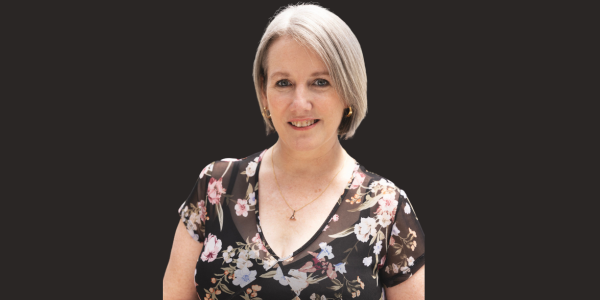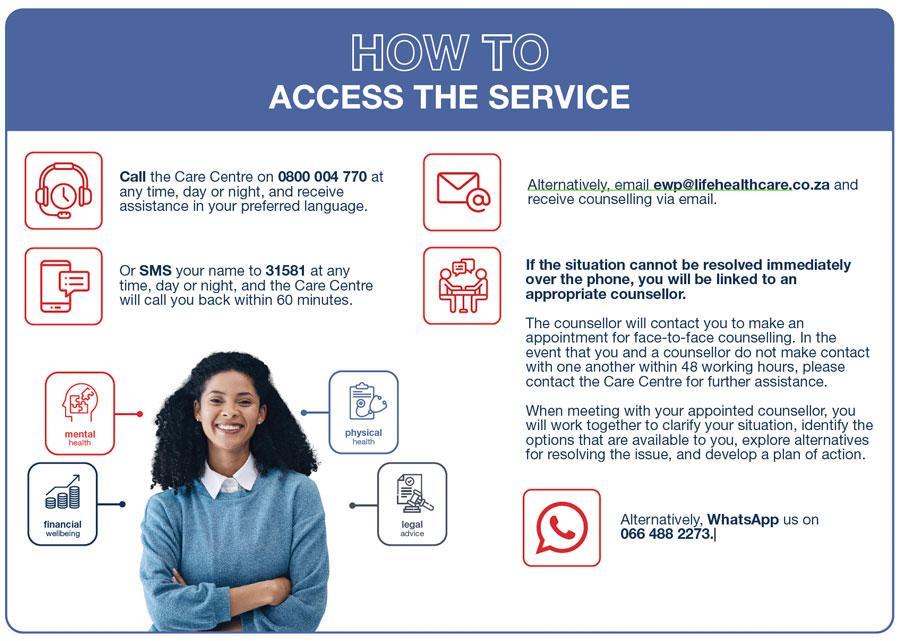Balancing ambition and an invisible chronic condition
- Wits University
Reasonable accommodation ensured that an early diagnosis did not get in the way of a successful academic career.

As an active, sporty, ambitious young mother, receiving the diagnosis of a chronic illness in your early thirties can completely derail your vision of your future. But giving up is not an option.
Adjunct Professor Paula Barnard-Ashton is a chirpy go-getter and an essential member at the Faculty of Health Sciences. Unbeknown to many, Barnard-Ashton, the Assistant Dean: Teaching, Learning and undergraduate affairs, is living with a chronic condition which requires her to carefully manage every aspect of her professional and personal life.
“I always had back problems as a teenager and I ascribed it to being a gymnast in primary school and then playing hockey and being a figure skater during my teens and early twenties. So, I really didn’t realise that there was more to it until I was in my early 30’s. Towards the end of a full day of private practice treating children I experienced major back pain, arm weakness and swelling of a finger (sausage finger), prompting me to see a specialist.”
At 33 she was diagnosed with ankylosing spondylitis (AS), also referred to as axial spondyloarthritis (axSpA) in the early stages, an autoimmune condition characterised by chronic inflammation that primarily targets the spine and sacroiliac joints but can also affect other joints and organs. It often causes pain, stiffness, and fatigue and can lead to reduced mobility over time.
While the news from her doctor came as a relief as she finally knew what was affecting her, the implications of the condition, however, were already changing the course of her life. For starters, she had to give up her career as a paediatric occupational therapist in private practice and eventually move away from the active demands of teaching occupational therapy.
“I trained as a paediatric occupational therapist specialising in sensory integration. During therapy sessions I needed to hands-on facilitate the movements children and lift and rearrange heavy therapy equipment. This became increasingly difficult. As a lecturer, I found it hard to supervise students on clinical placements and standing for an hour of lecturing became almost impossible. This possibly also prompted me towards technology for learning and student-centred active learning models of teaching”.
The loss of her professional identity hit her hard and with it came real grief at the loss of her professional goals and aspirations.
Luckily, the head of Department of Occupational Therapy and the head of the School of Therapeutic Sciences were understanding, aware of the clinical realities of the condition, and had a willingness to collaborate and communicate to find a solution that would serve all.
Transitioning into a new a role
Employers are required by law to reasonably accommodate employees whose health/physical condition changes during their term of employment. This can include redeployment.
“Reasonable accommodation isn’t necessarily about the employer procuring expensive assistive devices and equipment, thus being financially compromised, and having to accept lower productivity from the employee. It can be about shifting a person to a role to where they can be most effective.”
Skills transferability assisted Barnard Ashton to move into a new role, one in which she has succeeded while retaining her productivity as an academic and now as a leader in health sciences education and the use of educational technologies for 21st century learning.
Professor Alan Rothberg, then Head of the School of Therapeutic Sciences at the time, was a visionary who saw the need to incorporate e-learning in health sciences education. Barnard-Ashton, who had a range of skills, was moved to establish the School’s e-learning project in 2009 which later evolved into eFundanathi (Learn with Us) and the establishment of the eZone in 2017, thus initiating one of the first blended learning and teaching models in the University – a decade before this became a necessity during Covid-19.
“I had transferrable skills as I was tech savvy and had managed a website and a digital magazine focusing on remedial and special education to support parents of children with special needs,” she says, “I immediately saw how using the internet and virtual learning environments could support students learning.”
Community and awareness goes a long way
Barnard-Ashton admits that it’s not easy living with chronic pain. “Every day I am in pain but luckily I have a good support system and can continue to thrive.”
“My colleagues are extremely helpful and ensure that I do what’s best for my body. In between meetings they offer to carry my laptop and encourage me to take the stairs with them to avoid stiffness and strengthen my body.”
Some of the accommodations in her office include a standing desk and an ergonomically designed chair, and she sets a reminder stand.
She can’t sit for long periods of time, so she also has to make practical decisions such as choosing a seat at the end of the row for ease of movement and the ability to stand during long workshops or meetings. She monitors traffic patterns, choosing to leave home in the early hours to minimise time in the car. The same applies to sitting on the aisle during flights.
Every six months she sees her rheumatologist to ensure that her treatment is well managed (which includes a self-administered biologic injection) and she has weekly visits to her physiotherapist. Her story would not be complete without the support of her husband, who does most of the driving, and adult children, who do the grocery shopping and cooking.
She advises others to act early when it comes to ill-health, and to learn as much as possible about your condition.
A network of support
Wits has a range of support available to staff. These must first be discussed with the line manager and the human resources office which will engage the Disability Rights Unit, depending on the condition.
For more information visit the Axial Spondyloarthritis Association of South Africa dedicated to those living with the condition.
Wits employees can also reach out to Life Health Solutions, the University's Employee Wellness Partner for advice and support on a range of wellness topics.


